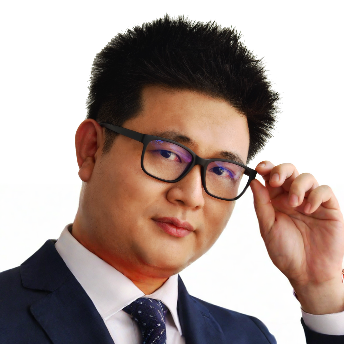Prof. Tsunenori Ishioka

The National Center for University Entrance Examinations, Japan
Prof. Tsunenori Ishioka received his Ph.D. from Tokyo University of Science in 1992. After working at Ricoh Co., Ltd., he joined the National Center for University Entrance Examinations in 1998. Currently, he is a professor emeritus and visiting professor at the National Center for University Entrance Examinations. He is also a visiting professor at Tokyo University of Agriculture and Technology. He developed the Jess system, an automatic scoring system for Japanese essays. While at Ricoh, he engaged in the design and development of the library management system Limedio, the No. 1 system in Japan's four-year university libraries for 20 consecutive years since 2000.
Speech Title: Effective Use of Generative AI in Creating Exam Questions
Abstract: This presentation will briefly survey three methods of additional learning in generative AI: 1. In-context learning, 2. Fine-tuning, and 3. Retrieval-Augmented Generation (RAG). We will then introduce the latest research on three aspects of test question creation: 1. difficulty adjustment using IRT, 2. Bloom's Taxonomy, and 3. distractor generation. This application requires three essential elements: context, the question and the answer.
Assoc. Prof. Dr. Charnsak Srisawatsakul

Stamford International University, Thailand
Assoc. Prof. Dr. Charnsak Srisawatsakul currently serves as the Program Director for the MSc. and Ph.D. programs in Digital and Information Technology at Stamford International University Thailand. His academic foundation was forged at School of Information Technology, King Mongkut's University of Technology Thonburi (KMUTT), one of Thailand's top-tier engineering and technology institutions. He was awarded the prestigious “Petchra Pra Jom Klao” Scholarship to pursue both his Master's and Doctoral degrees.
Dr. Srisawatsakul's international profile is highlighted by the rare distinction of being a three-time recipient of the highly competitive OeAD Ernst Mach Grant from Austria government, which facilitated his Postdoctoral research at the University of Vienna. His career uniquely spans the worlds of industry and media, with foundational experience as a software developer, an intern at Intel Technology, and a respected columnist for national computer magazines, before dedicating himself to academia where he has held leadership roles such as Vice Dean for Research and Academic Affair at Faculty of Computer Science in a public university in Thailand.
Across his extensive body of work, published in Scopus-indexed journals and international conferences, a consistent theme emerges: a passion for translating complex theoretical concepts into practical, real-world applications.
Speech Title: CyberGuardSME: A Generative AI Chatbot Bridging Thai SMEs with EU Cybersecurity Practice
Abstract: Small and Medium Enterprises (SMEs) are increasingly vulnerable to cybersecurity threats, particularly as they adopt digital technologies. Thai SMEs face unique challenges in knowledge and implementing robust cybersecurity measures. This paper introduces CyberGuardSME, a generative AI chatbot designed to act as a virtual cybersecurity consultant. The system leverages Retrieval-Augmented Generation (RAG) with open-source Large Language Models (LLMs) to provide Thai SMEs with actionable, privacy-focused multilingual (English and Thai) guidance based on established frameworks from the European Union Agency for Cybersecurity (ENISA) and the Austrian Chamber of Commerce (WKO). Following a Design Science Research (DSR) approach, a functional prototype as an artifact of CyberGuardSME was developed and subjected to a preliminary evaluation with Thai SMEs, managers and IT officers. The evaluation assessed both functional attributes and non-functional user acceptance based on the constructs from Technology Acceptance Model (TAM). The results were highly positive, with experts rating the chatbot’s advice as accurate and actionable and expressing a strong behavioral intention to use the system in the future. This paper details the system architecture and the promising initial findings, confirming the viability of using a generative AI-powered chatbot to enhance the cybersecurity readiness of Thai SMEs and laying the groundwork for future large-scale, real-world evaluation.
Prof. Marcel Schaible

FernUniversity Hagen, Germany
Marcel Schaible earned his degree in Computer Science with a specialization in Electrical Engineering from the Technical University of Munich. After graduating, he spent two years in the United States working as a senior software engineer before returning to Germany, where he founded a company focused on embedded real-time control systems and distributed software technologies. In 2019, he joined the Chair of Communication Networks at FernUniversity in Hagen as a senior computer scientist. His current research focuses on AI-supported lecturing, intelligent tutoring systems, adaptive assessment methods, and the integration of large language models into digital learning environments. In addition to his academic responsibilities, he serves as the Acting Convenor (Chair) for Programming Languages at the German Institute for Standardization (DIN). He is also the Deputy Committee Chair of the Technical Committee "Real-Time and Autonomous Systems" of the German Informatics Society (GI). Furthermore, he is an active member of the GI technical committees on real-time and embedded systems.
Speech Title: AI-Based Tutoring Systems in Distance Education
Abstract: This paper presents tutoring system that integrates large language models (LLMs) with a structured knowledge base to support automated exercise generation, solution assessment, and adaptive feedback in distance education. By combining LLM-based reasoning with Retrieval-Augmented Generation, the system enables instructors to prepare course materials and tasks efficiently while providing students with immediate, individualized feedback on their submissions. The evaluation shows that the approach increases the availability of formative assessment, improves feedback quality, and reduces manual correction effort, demonstrating the potential of AI-driven tutoring systems to enhance large-scale online learning environments.
